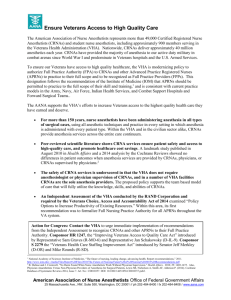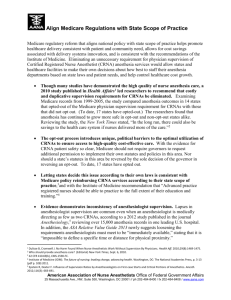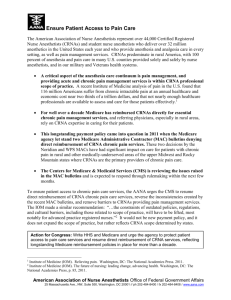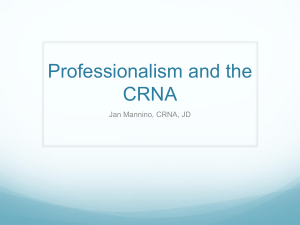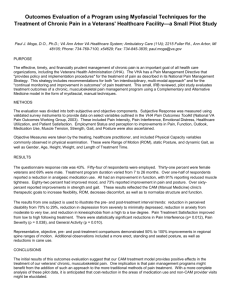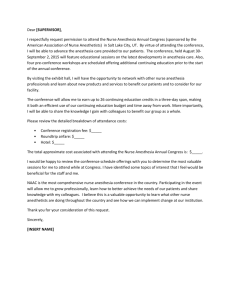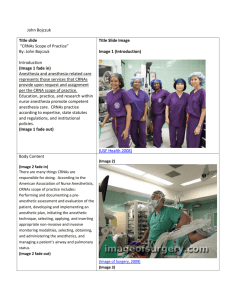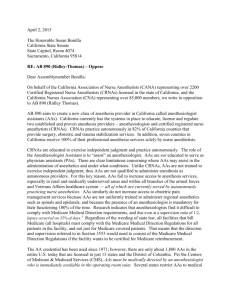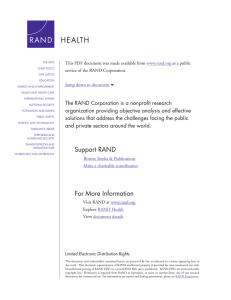Ensure Veterans Access to High Quality Care
advertisement
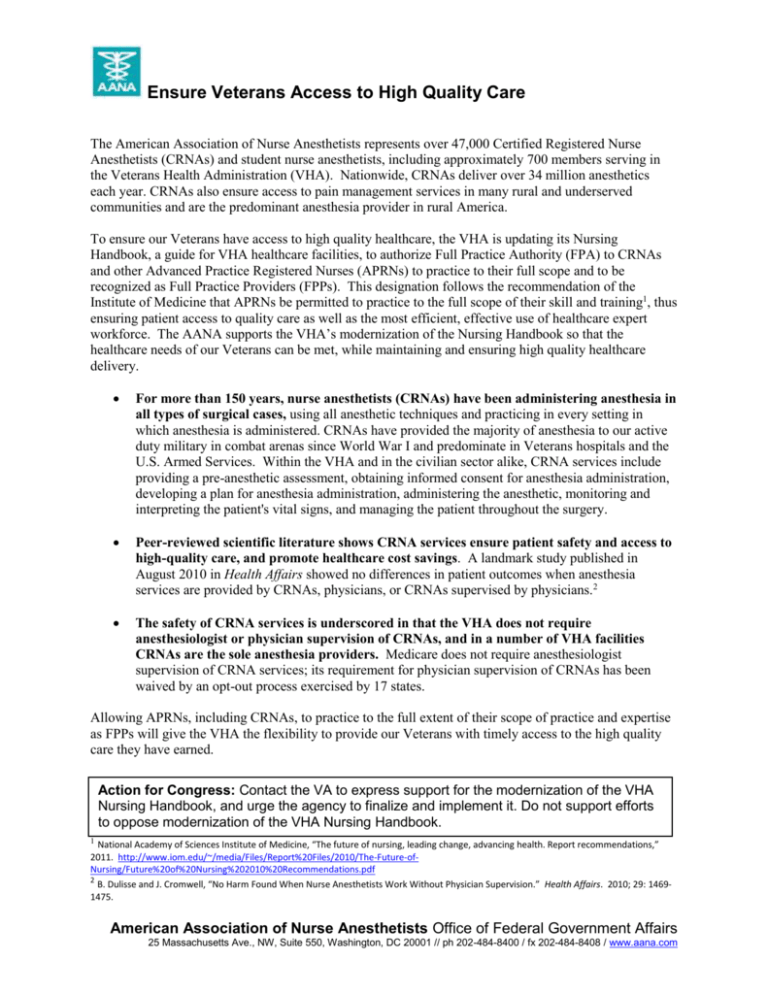
Ensure Veterans Access to High Quality Care The American Association of Nurse Anesthetists represents over 47,000 Certified Registered Nurse Anesthetists (CRNAs) and student nurse anesthetists, including approximately 700 members serving in the Veterans Health Administration (VHA). Nationwide, CRNAs deliver over 34 million anesthetics each year. CRNAs also ensure access to pain management services in many rural and underserved communities and are the predominant anesthesia provider in rural America. To ensure our Veterans have access to high quality healthcare, the VHA is updating its Nursing Handbook, a guide for VHA healthcare facilities, to authorize Full Practice Authority (FPA) to CRNAs and other Advanced Practice Registered Nurses (APRNs) to practice to their full scope and to be recognized as Full Practice Providers (FPPs). This designation follows the recommendation of the Institute of Medicine that APRNs be permitted to practice to the full scope of their skill and training1, thus ensuring patient access to quality care as well as the most efficient, effective use of healthcare expert workforce. The AANA supports the VHA’s modernization of the Nursing Handbook so that the healthcare needs of our Veterans can be met, while maintaining and ensuring high quality healthcare delivery. For more than 150 years, nurse anesthetists (CRNAs) have been administering anesthesia in all types of surgical cases, using all anesthetic techniques and practicing in every setting in which anesthesia is administered. CRNAs have provided the majority of anesthesia to our active duty military in combat arenas since World War I and predominate in Veterans hospitals and the U.S. Armed Services. Within the VHA and in the civilian sector alike, CRNA services include providing a pre-anesthetic assessment, obtaining informed consent for anesthesia administration, developing a plan for anesthesia administration, administering the anesthetic, monitoring and interpreting the patient's vital signs, and managing the patient throughout the surgery. Peer-reviewed scientific literature shows CRNA services ensure patient safety and access to high-quality care, and promote healthcare cost savings. A landmark study published in August 2010 in Health Affairs showed no differences in patient outcomes when anesthesia services are provided by CRNAs, physicians, or CRNAs supervised by physicians.2 The safety of CRNA services is underscored in that the VHA does not require anesthesiologist or physician supervision of CRNAs, and in a number of VHA facilities CRNAs are the sole anesthesia providers. Medicare does not require anesthesiologist supervision of CRNA services; its requirement for physician supervision of CRNAs has been waived by an opt-out process exercised by 17 states. Allowing APRNs, including CRNAs, to practice to the full extent of their scope of practice and expertise as FPPs will give the VHA the flexibility to provide our Veterans with timely access to the high quality care they have earned. Action for Congress: Contact the VA to express support for the modernization of the VHA Nursing Handbook, and urge the agency to finalize and implement it. Do not support efforts to oppose modernization of the VHA Nursing Handbook. 1 National Academy of Sciences Institute of Medicine, “The future of nursing, leading change, advancing health. Report recommendations,” 2011. http://www.iom.edu/~/media/Files/Report%20Files/2010/The-Future-ofNursing/Future%20of%20Nursing%202010%20Recommendations.pdf 2 B. Dulisse and J. Cromwell, “No Harm Found When Nurse Anesthetists Work Without Physician Supervision.” Health Affairs. 2010; 29: 14691475. American Association of Nurse Anesthetists Office of Federal Government Affairs 25 Massachusetts Ave., NW, Suite 550, Washington, DC 20001 // ph 202-484-8400 / fx 202-484-8408 / www.aana.com
